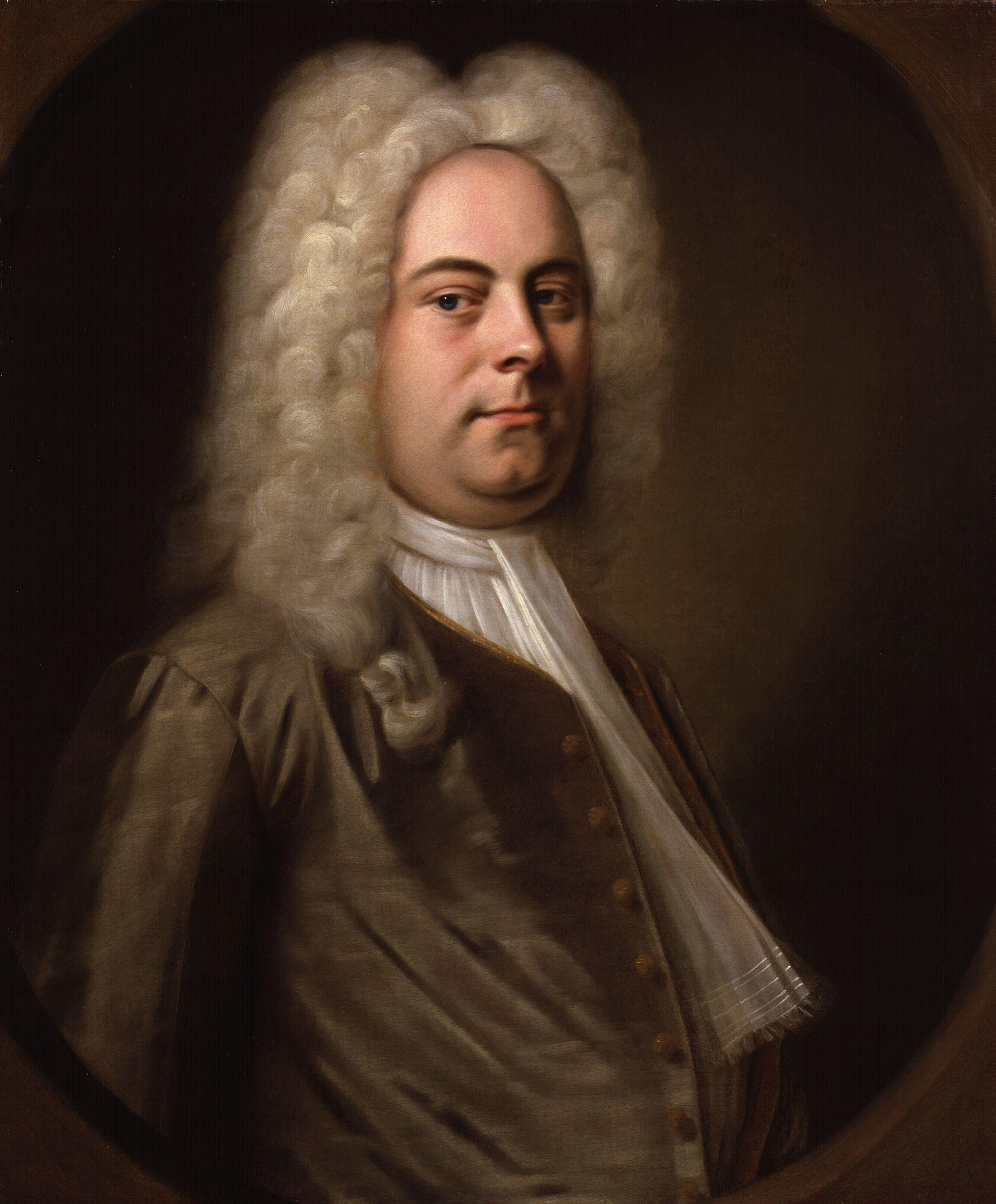Georg Friedrich Händel słynne cytaty
„Nie wiem, czy było to w moim ciele, czy poza nim. Bóg to wie!”
Whether I was in my body or out of my body I know not. God knows it! (ang.)
o chórze Alleluja z Mesjasza z 1741.
Źródło: „The Harvard Magazine” (grudzień 1862), s. 141.
„Byłbym niepocieszony, jeśli tylko dostarczyłem im rozrywki. Chciałem uczynić ich lepszymi.”
I should be sorry if I only entertained them, I wish to make them better (ang.)
do lorda Kinnoulla, który dziękował za wspaniałą rozrywkę, jaką było oratorium Mesjasz („the noble entertainment which he had lately given the town”).
Źródło: James Beattie, list z 25 maja 1780, opublikowane w: An Account of the Life and Writings of James Beattie, Williama Forbesa (1806), s. 331.
Händel ist der unerreichte Meister aller Meister. Gehen Sie und lernen Sie von ihm, wie gewaltige Wirkungen mit einfachen Mitteln zu erreichen ist. (niem.)
wypowiedź Beethovena.
Cytaty o Händlu
Źródło: Friedrich Kerst, Beethoven der Mann und der Künstler, wie in seinen Eigenen Words enthüllt
„Naprawdę myślałem, że zobaczyłem całe niebo przede mną, i samego Wielkiego Boga.”
I did think I did see all heaven before me, and the great God himself. (ang.)
o chórze Alleluja z Mesjasza z 1741.
Źródło: Horatio Townsend, An Account of the Visit of Handel to Dublin (1852), s. 93.
You have taken far too much trouble over your opera. Here in England that is mere waste of time. What the English like is something that they can beat time to, something that hits them straight on the drum of the ear. (ang.)
konwersacja z Christophem Willibaldem Gluckiem.
Źródło: Anton Schmid, Christoph Willibald Ritter von Gluck (1854), s. 29.
Georg Friedrich Händel: Cytaty po angielsku
“This man is the master of us all.”
Er ist der Meister von uns allen!
Haydn, at a performance of Messiah. Quoted in John Galt George the Third, His Court and Family (1824) p. 34, and in Leopold Schmidt Joseph Haydn (1898) p. 86.
Criticism
“I should be sorry if I only entertained them, I wish to make them better.”
James Beattie, letter of May 25, 1780, published in William Forbes An Account of the Life and Writings of James Beattie, LL.D. (1806) p. 331.
In reply to Lord Kinnoull, who had complimented him on his Messiah, "the noble entertainment which he had lately given the town". Beattie had this on the authority of Kinnoull himself.
“Händel is the greatest and ablest of all composers; from him I can still learn.”
Händel ist der Größte und Fähigste aller Komponisten; von ihm kann ich immer noch lernen.
Beethoven on his deathbed, speaking to Gerhard von Breuning. Published in Friedrich Kerst Beethoven der Mann und der Künstler, wie in seinen Eigenen Words enthüllt no. 111 http://www.bucheralle.org/6C76626D613131/ch35.html; Friedrich Kerst (trans. Henry Edward Krehbiel) Beethoven, the Man and the Artist, as Revealed in his own Words (1964), p. 54.
Criticism
Richard Alexander Streatfeild Handel (2005) p. 195, citing Anton Schmid Christoph Willibald Ritter von Gluck (1854) p. 29
In conversation with Gluck.
“Händel is the greatest composer that ever lived. I would uncover my head and kneel on his grave.”
Händel ist der größte Komponist, der je lebte. Ich würde meine Kopfbedeckung abnehmen und auf seinem Grab knien.
Beethoven, speaking to J. A. Stumpff in the autumn of 1823. Published in Friedrich Kerst Beethoven der Mann und der Künstler, wie in seinen Eigenen Words enthüllt no. 112 http://www.bucheralle.org/6C76626D613131/ch35.html; Friedrich Kerst (trans. Henry Edward Krehbiel) Beethoven, the Man and the Artist, as Revealed in his own Words (1964), p. 54.
Criticism
Samuel Butler Notebooks (2004) p. 153.
Criticism
Leigh Hunt Table-Talk (1851) pp. 147-8.
Criticism
“Whether I was in my body or out of my body I know not. God knows it!”
Quoted in The Harvard Magazine (December 1862), p. 141.
On composing the "Hallelujah Chorus" in 1741.
“I did think I did see all heaven before me, and the great God himself.”
Horatio Townsend An Account of the Visit of Handel to Dublin (1852) p. 93, citing Laetitia Matilda Hawkins Anecdotes, Biographical Sketches and Memoirs vol. 1 (1822).
His reply on being asked what his feelings were while writing the "Hallelujah Chorus".
George Bernard Shaw in Ainslee's Magazine, May 1913.
Criticism
“Handel paralysed music in England for generations and they have not yet quite got over him.”
Frederick Delius, letter to Ethel Smyth, February 17, 1909; Lionel Carley Delius: A Life in Letters vol. 2 (1988) p. 9.
Criticism
